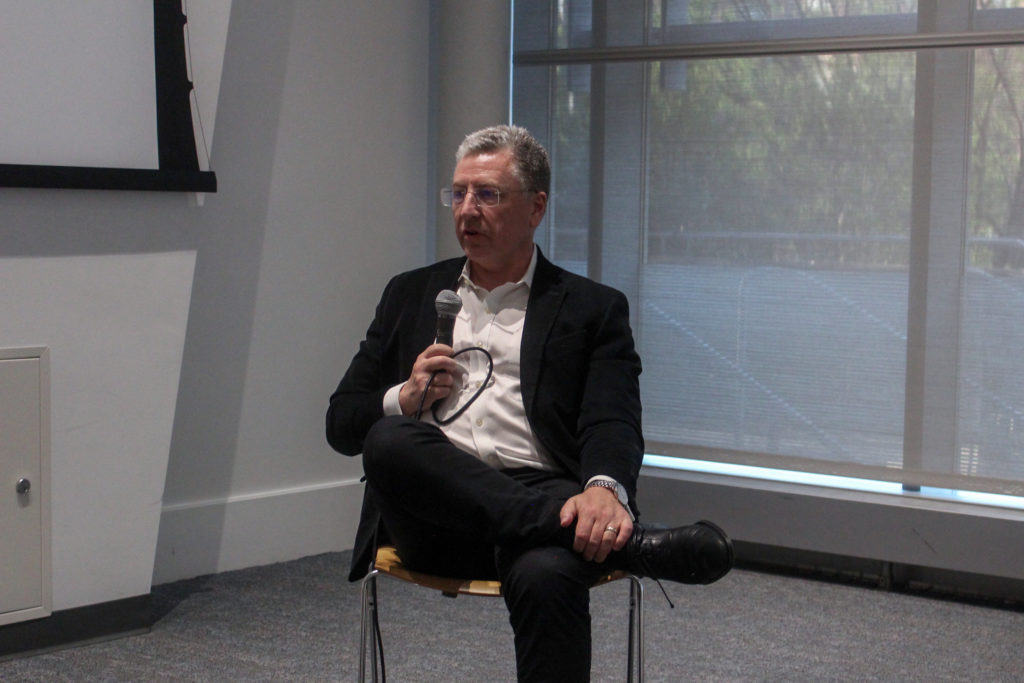A former U.S. ambassador discussed the policies and strategies used in the Russian invasion of Ukraine at the University Student Center Tuesday.
Kurt Volker, a GW alumnus, said he served as the U.S. ambassador to the North Atlantic Treaty Organization from 2008 to 2009 and the special envoy to Ukraine from 2017 to 2019 before becoming the first witness to testify during the House of Representatives’ first impeachment of former President Donald Trump. The Ukrainian-American Student Association and the Russian-Speaking Association co-hosted the event that was moderated by Ekaterina Shengeliya, the vice president for the RSA, and Lydia Miller, the president of the UASA.
Volker, who recently wrote an article calling for Ukraine to become a NATO member, said he supports adding Ukraine to the organization because the county’s security is essential to Europe’s security. Volker said Russia defeating Ukraine could jeopardize nearby countries because Russia could continue its invasion beyond Ukraine.
“We have a problem in Europe that is bigger than Ukraine, and this is an ideology of genocide and imperialism that threatens Ukraine’s identity but not only Ukraine’s identity, and it has brought the largest war to Europe since World War Two,” Volker said.
The Russian Defense Ministry announced in March that it would begin to recruit new soldiers to the Russian army. Volker said he advises people to be skeptical of such announcements because Russia has an incentive to “create fear and concern” among Western countries.
“First rule of international strategy when it comes to Russia, do not listen to what the Russians say,” Volker said.
Volker said the United States should “stop holding ourselves back” and continue to provide economic and military assistance to Ukraine throughout the conflict because the country lacks the resources necessary to engage in war. He said less “revenue support” to Ukraine gives Russian President Vladimir Putin more “time and opportunity” to continue bombing Ukrainian cities and firing artillery shells.
“Ukraine can’t do this on its own,” Volker said. “It doesn’t have the military equipment, it doesn’t have the production, it doesn’t have anything near the capacity on its own.”











